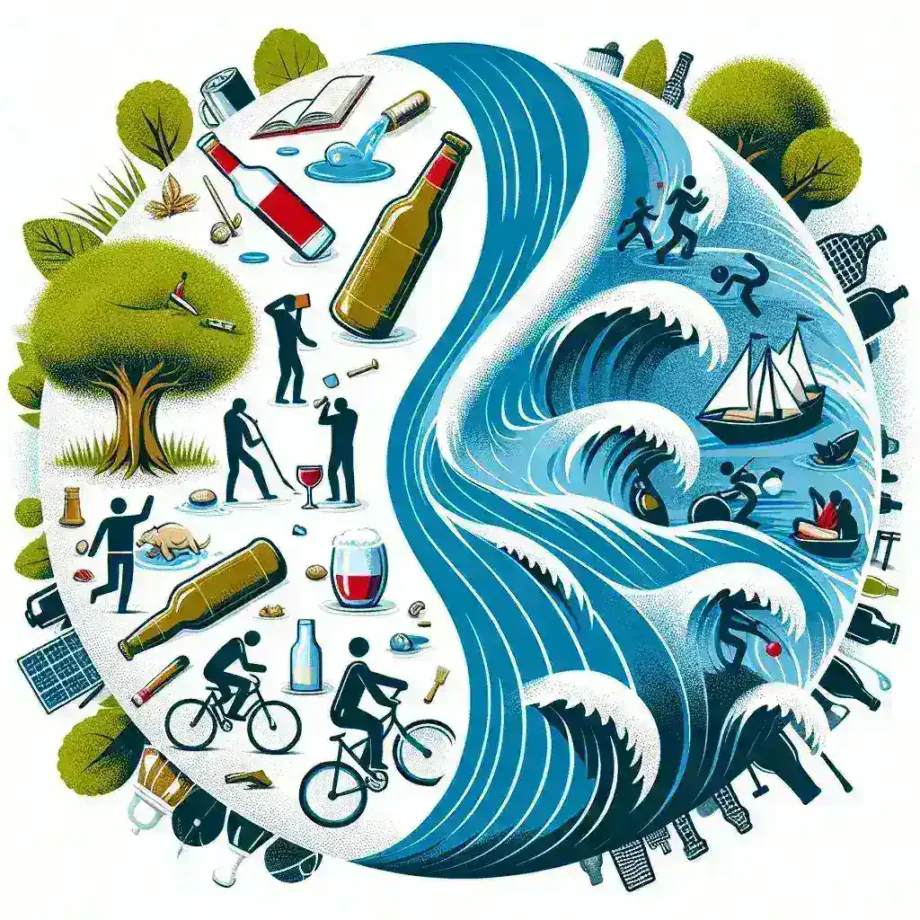
Understanding the Global Shift in Alcohol Consumption Patterns
In recent years, a remarkable transformation has been taking place in societies worldwide: the steady decline in alcohol consumption. This shift represents more than just a change in drinking habits; it reflects evolving social norms, health consciousness, and generational attitudes that are reshaping our relationship with alcohol. Let’s delve deep into this phenomenon and explore its far-reaching implications for society.
The Numbers Behind the Decline
Recent statistics paint a compelling picture of changing drinking patterns across the globe. According to various health organizations and market research firms, there’s been a noticeable downward trend in alcohol consumption, particularly among younger generations. This decline isn’t limited to any single region or demographic; it’s a global phenomenon that’s catching the attention of sociologists, health experts, and industry analysts alike.
Key Statistics:
- Millennials and Gen Z show significantly lower rates of alcohol consumption compared to previous generations
- Many developed countries report a 10-20% decrease in per capita alcohol consumption over the past decade
- The non-alcoholic beverage market has experienced unprecedented growth
- Social media influence has contributed to more mindful drinking habits
Driving Forces Behind the Decline
Several interconnected factors contribute to this shifting landscape of alcohol consumption. Understanding these elements is crucial for comprehending the broader societal implications.
Health Consciousness and Wellness Culture
The rise of wellness culture has played a pivotal role in changing attitudes toward alcohol. Modern consumers are increasingly health-conscious, prioritizing physical and mental well-being over traditional social drinking customs. This shift has led to:
- Greater awareness of alcohol’s health impacts
- Increased interest in fitness and wellness activities
- Growing popularity of “mindful drinking” movements
- Rising demand for health-oriented social activities
Generational Shifts in Social Behavior
Younger generations are rewriting the rules of social interaction and entertainment. Their preferences and behaviors differ significantly from their predecessors, influenced by:
- Digital social connections reducing the need for traditional bar socializing
- Increased focus on career and personal development
- Greater awareness of mental health issues
- Different approaches to dating and relationships
Economic Implications of Reduced Alcohol Consumption
The decline in alcohol consumption has triggered substantial economic ripples across various sectors. These changes are reshaping business models and creating new market opportunities.
Impact on Traditional Industries
- Bars and nightclubs adapting their business models
- Traditional alcohol manufacturers diversifying their product lines
- Changes in restaurant revenue streams
- Shifts in entertainment venue operations
Emerging Market Opportunities
As traditional alcohol markets contract, new business opportunities are emerging:
- Non-alcoholic craft beverages
- Alcohol-free social spaces
- Wellness-focused entertainment venues
- Digital social platforms and experiences
Social and Cultural Implications
The decline in alcohol consumption is fundamentally changing how people socialize and interact, leading to significant cultural shifts.
Changes in Social Norms
- Reduced stigma around non-drinking
- New forms of social bonding and interaction
- Evolution of dating and relationship dynamics
- Changing workplace culture and networking practices
Impact on Mental Health and Well-being
The reduction in alcohol consumption has notable implications for public health and social well-being:
- Decreased instances of alcohol-related mental health issues
- More open discussions about mental health
- Improved work-life balance
- Better sleep patterns and overall wellness
Public Health Benefits and Challenges
The decline in alcohol consumption has significant implications for public health systems and society at large.
Positive Health Outcomes
- Reduced burden on healthcare systems
- Decreased incidents of alcohol-related accidents
- Lower rates of liver disease and related conditions
- Improved community safety and well-being
New Challenges and Considerations
However, this shift also presents new challenges:
- Economic adjustment for healthcare systems
- Need for new addiction prevention strategies
- Changing approaches to mental health support
- Evolution of social support systems
The Future Landscape
Looking ahead, the decline in alcohol consumption is likely to continue shaping society in numerous ways:
Predicted Trends
- Further growth in non-alcoholic alternatives
- Evolution of social spaces and activities
- Continued focus on health and wellness
- New forms of social connection and entertainment
Long-term Societal Impact
The long-term implications of reduced alcohol consumption could include:
- Healthier, more productive communities
- Changed social dynamics and traditions
- New economic opportunities and business models
- Evolved cultural norms and practices
Conclusion
The decline in alcohol consumption represents a significant societal shift with far-reaching implications. From economic impacts to cultural changes, this trend is reshaping how we socialize, work, and live. As society continues to evolve, understanding and adapting to these changes will be crucial for individuals, businesses, and communities alike. The future promises a more diverse and inclusive social landscape where traditional alcohol-centered activities coexist with new forms of connection and entertainment.
This transformation offers both challenges and opportunities, suggesting a future where health, wellness, and conscious social interaction take center stage. As we move forward, the ability to embrace and adapt to these changes will be key to thriving in this evolving social landscape.
